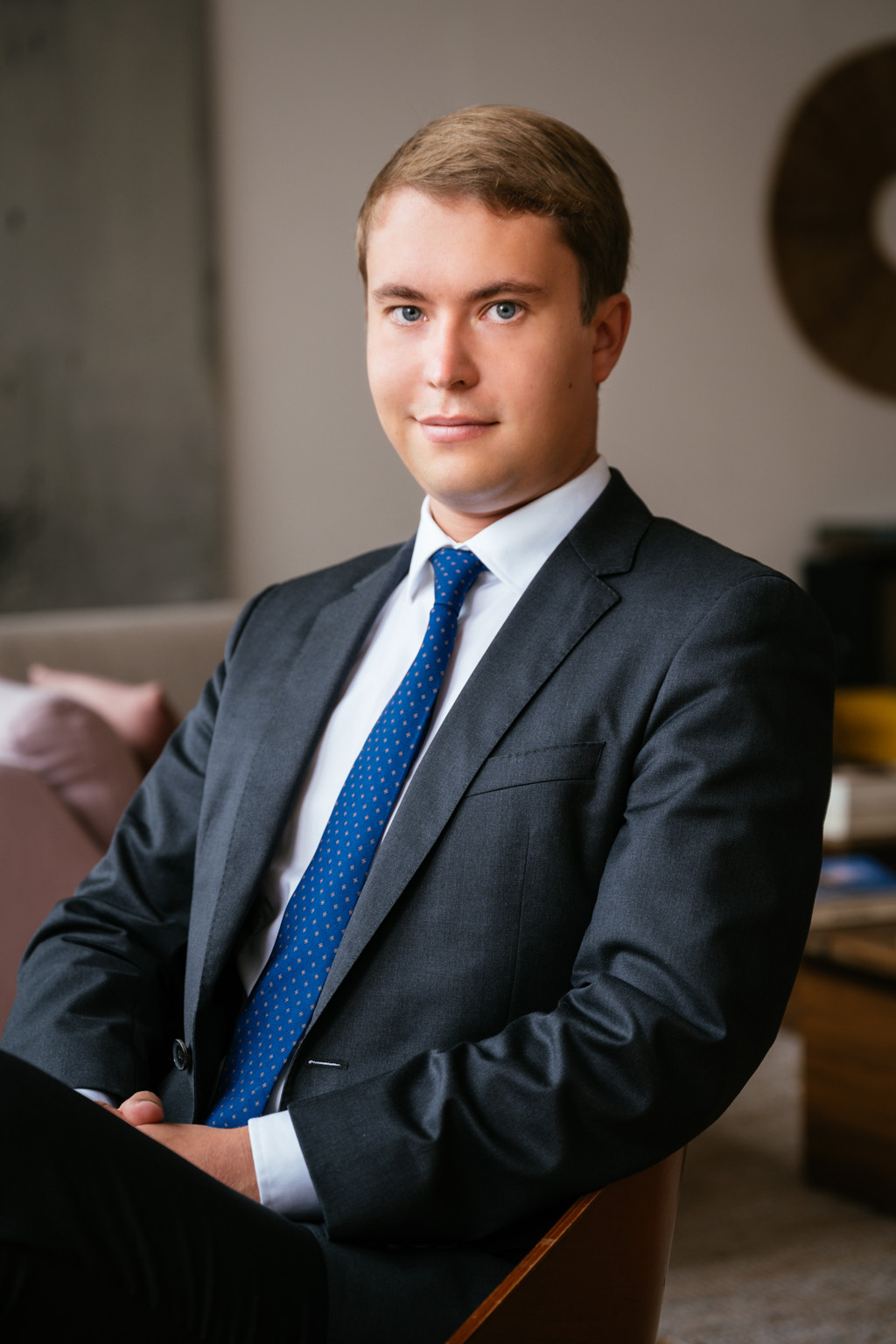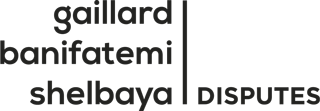Antonio Wirta is a senior associate at Gaillard Banifatemi Shelbaya Disputes.
Where are you from and how did you come to law?
I’m originally from Helsinki, but I went to an international school and grew up with people from around the world.
I didn’t really have any strong philosophy about studying law when I was 18. I don’t have any lawyers in the family either—they’re all doctors or architects—but I had to choose something, and the only things I did know (from when I was young) was that I wanted an international career. I could have ended up being the captain of a ship, but I chose to study law in London.
Where did you study?
At King’s College. I knew I wanted to do something related to international law, because if you study just a national legal system, then you’re stuck in the country where you study. I wanted to discover more than just one legal system, and how they interact with each other.
How did you discover arbitration?
I took a class in arbitration during my last year of law studies in London. I really liked it. It was a much smaller class than the other ones. My professor, Professor Anthony Guest, was very engaging, and the class involved reading long and interesting decisions and discussing and writing about specific problems that arose out of English and international arbitration law, while trying to suggest solutions to those problems. I like to read and write. I also realized that, with arbitration, I could work anywhere. I wanted to have a chance to live in different places and really figure out what place is good for me.
How did you figure it out?
I went to the US for a Master’s in law at Cornell. It’s in Ithaca, which is a very small town, very cold. So it was like being back in Finland! I loved New York, but it’s not the easiest place to start a job. After my Master’s, I applied for jobs everywhere, not really focusing on any particular place. I notably applied in Singapore and, of course, in London and Paris, as these were the two main arbitration hubs. Just a few months after I passed my New York bar—I had just turned 23—I was accepted for an internship in Paris at Shearman & Sterling.
How did you get into it?
I had very good grades in International arbitration, both at King’s and at Cornell. At King’s, I even won the prize for the best student in Arbitration. And then I also got lucky, because there was a big Finnish dispute at the firm at the time, and they needed someone who speaks Finnish.
What was your first impression?
I didn’t know what to expect at all when I walked in on the first day. I had never been at a large law firm, except for my interview at Shearman & Sterling in New York. I didn’t know what to expect.
The first impression was challenging! On my first day, I was placed in a large room with five other trainees, and I was told: “You’re not going to leave tonight before midnight.” I thought it was a joke, but it wasn’t! In fact, they were in the middle of a very large filing, there were binders everywhere full of documents. I was asked to “cite-check” a long document, and I had to ask what that meant. For the first weeks, we were working very long hours and I was trying to adjust. I didn’t have time to think if I liked it or not. Then slowly, things calmed down and I understood better the process, and started seeing how everyone works together. I ended up liking the atmosphere, the intensity of the work.
So you started by saying that you didn’t have a philosophy or an idea of law before you just started studying. What do you think now? How do you articulate your taste for arbitration law?
Well, the one thing I did know in high school is that I was good at writing. My best grades in high school were in English and Finnish, where I had to write a lot of essays. So it made sense to have a job where I could write a lot. It didn’t really matter to me what I would write about, or how long that would be (I even realized that I love writing hundreds of pages!). International arbitration ended up being the perfect way to combine an international career with a career that also repeatedly challenges my writing skills.
In our field, there’s a form of artistry in the fact that we have to make other people understand concepts that we don’t even necessarily understand ourselves at first, because we often work in different fields and industries (we could go from a gas price case to a dispute in the pharmaceutical industry and, the next day, work on engineering questions). It’s our job as lawyers to write in a way that makes very difficult matters, be they legal or science-based, understandable by anyone. Better still, we have to find a way to explain things in a clear manner, often quickly, but making that an interesting read.
How did you go from Shearman & Sterling to Gaillard Banifatemi Shelbaya Disputes? How did it happen for you?
I wasn’t expecting the change at all. I just got a call from Emmanuel and Yas one evening. I thought it was about the filing we were working on, as we were one week away. But they just said, “By the way, we’re going to start a new firm.” After Yas explained the project briefly, she told me that I had one week to decide if I wanted to follow the team or not. The choice was easy: I quite liked working with Emmanuel, Yas, Coralie and the whole team, and I didn’t want to go anywhere else.
Do you feel like there is something very specific about the place you’re working at?
Yes, I do think that ours is the only law firm in international arbitration where personality matters as much as being an elite lawyer. When the firm’s management hires someone, they really pay attention to who the candidate is as a person, and if they are able to work in a team. I do not mind working on my own, I like it in fact. But teamwork is essential. That’s why I never wanted to work at another law firm: not only for the sense of teamwork and respect for others that is part of the firm’s DNA, but also because I got to learn arbitration law through their way of working with their team.
I’m especially happy to have learned from Emmanuel and Yas the vital importance of always thoroughly thinking everything through (no matter how small or big the question), and to have learnt from Coralie an acute attention to detail and devotion to the clients’ needs. These are all skills that are also useful in everyday life!
We all get along very well. We know each other’s personalities. We know each other’s ways of working, so we can support each other when we need to. There’s a sense of deep trust that everyone’s going to do their part, and do it well, hand in hand with other team members.
Do you work on a specific field?
I am specialized in construction arbitration, although I also regularly work in matters relating to energy. I’ve always liked buildings. You may know the saying that buildings are there for hundreds of years. I like this idea of permanence.
Also, my grandparents were architects. My grandmother would have loved it if I were to become an architect too. But when I was younger, I imagined that I can’t draw at all, so that did not help! Funnily, now I get to work a lot on construction matters and that’s a nice connection to my family.
What’s your best professional memory?
I think my favorite memory is still my first day at the firm – which I mentioned earlier – when I was immediately staffed on a very large and intense filing. It turned out it was about the construction of a nuclear power plant in Finland. On my first day, the associate I was working with told me that this was his most complicated arbitration case. It was a huge project, and the dispute was connected to particular details of engineering and nuclear safety. So it was really complex, intense and we had a huge team. That was a memorable first experience. But given the complexity I had to face in that case and from my very first day, since then, everything else has seemed somehow less complex! That was a good way for me to start, by working on the most complicated construction case possible, and find a way to simplify things.
What are the professional goals you are looking at?
I think I still have a lot to learn. That is the beauty of international arbitration: one never stops learning.
I’m also trying to expand my cultural horizons: I’m currently working in French for the first time on a case, which is also a new challenge because I have to write in French. Even though I’m comfortable speaking it, it’s still not the same thing as writing an arbitration submission in French. I do want to perfect my language because language is something that also interests me. So that’s a nice challenge, too.
Interview by Valentine Faure, journalist

